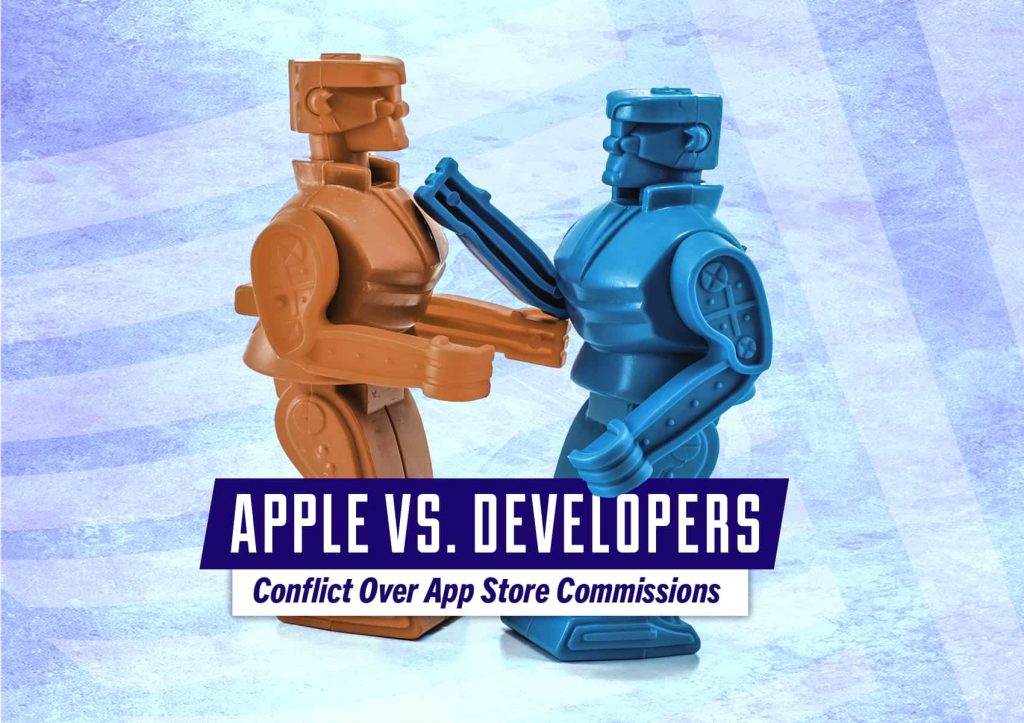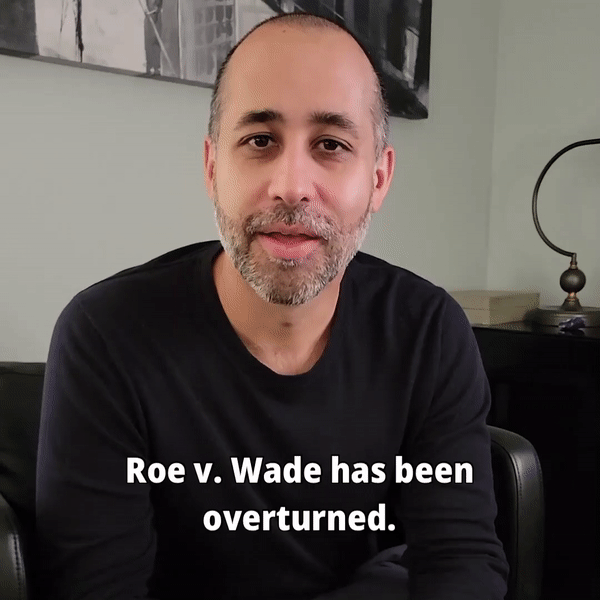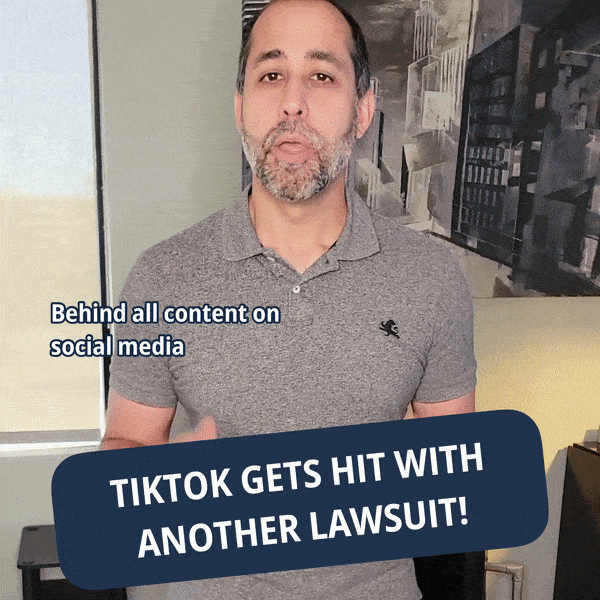“He who fights monsters should see to it that he himself does not become a monster. And if you gaze for long into an abyss, the abyss gazes also into you.”
Frederick Nietzsche
Epic Games v. Apple Inc.
In a choreographed corporate dance deftly executed by Epic Games founder and luminary Tim Sweeney this past August, Apple Inc. was seemingly goaded into Sweeny’s well-placed legal trap. Since then, the likes of Spotify, Facebook and other companies have added their voices in support of Epic’s cause, with Match Group going so far as to release a statement chiding Apple for using “its dominant position and unfair policies to hurt consumers, app developers, and entrepreneurs.” While Epic is enjoined by more and more corporate advocates, the playerbase of Fortnite, it’s most popular game, is left with an almost unplayable version of its world on iOS, at least until the upcoming antitrust trial is over.
As the erstwhile underdog that notably took on IBM’s dominate position in personal computing during the 1980’s, Apple has over the decades slowly transmogrified into that which it once righteously fought against. Ever since then, since those idealistic days of cavalier disruption, much at the company has been refashioned with accoutrements more comparable to a cavalier behemoth defending its dominate position than a tousled freedom fighter. Perhaps Apple looked too long into Nietzsche’s spellbinding abyss.
With the inception of the iPhone and subsequent creation of the App Store in 2008, Apple leveraged its predominance as gatekeeper and seized on the advantage of its captive market, imposing a sizable cut of 30% on every purchase, both app purchases and in-app purchases, and in doing so has held a chokehold on every app developer desiring to utilize the platform for decades. In an interview with CNBC this past July Sweeny commented on the state of the gaming industry:
How Apple Influenced Sweeny
“Apple invented the personal computer industry, and the first several generations of hardware were open platform. Anyone could write code or release software. And now apple has locked down and crippled the ecosystem by imposing a monopoly on distribution and monetization of software.”
As a self-prescribed optimist, Sweeny believes in the future—in part because his vision is guided by his past. His formative years were spent living through a Wild West period of technological expansion when there were few gatekeepers and less rules. When he received his first computer from his brother, an Apple II, everything was open platform. In the early years of personal computers anyone could release software and anyone could install software from any source. Apple though, in the years since Steve Job’s passing, has become more and more akin to what it once railed against, and has crippled and locked-down its ecosystem of apps by imposing an absolute monopoly on the distribution and monetization of software on their platform, excluding all competitors from having their own stores on iOS.
“Epic is a unique business.” Sweeny told a reporter during an interview to accept a special BAFTA award for Epic Games (yes, Sweeny has a British Academy of Film and Television Arts award). “We’re not just a game maker, we’re not just a technology maker, we have to put all of this together and show the world a view of the future that works.”
The Background of Epic Games
Sweeny’s company might currently be a multimillion-dollar enterprise, but it had humble beginnings. In 1991 he founded and operated Epic, like many entrepreneurs of his time did, in his parents garage, with what we now call a freemium game. That same scrappy maverick attitude has stayed with him to this day. In championing that view, and because no David could possibly match the likes of this Goliath, Sweeny decided to step in for all other publishers on iOS, launching his plot this past August by introducing a permanent discount on all of Epic’s in-store items, giving players the option to bypass Apple’s tithe through direct links inside its most popular game, Fortnight. Naturally, having explicitly violated its terms of service, Apple booted the game from its store, and as planned, within a few hours, so accompanied Epic files an antitrust lawsuit in the Northern District of California, not for any monetary damages, only for injunctive relief to force Apple to unshackle its marketplace for all app developers to use freely.
The Upcoming Antitrust Lawsuit
Like any court case involving titans of industry, following the initial filing flung months of pretrial motions and requests as both legal teams jockeyed to waylay each other. At one point Apple attempted to remove Epic’s access to developer tools for the App Store, and though that was prevented from occurring by Judge Yvonne Rogers, Apple has since terminated Epic’s iOS developer account, preventing the company from uploading any further material to the App Store. As a result all Fortnite users on iPhone are now cloistered away in a previous season of the game, unable to install any updates, causing the iOS playerbase to soon after plummet by 60%, and continues to fall with each passing season. The inability to update their software has also put Epic’s other games like Battle Breakers, Infinity Blade 3, and Spyjinx in jeopardy of losing traction with their mobile playerbase.
On January 1st of this year Apple adroitly announced the App Store Small Business Program, which allows iOS developers the option to apply for a reduced commission of 15%. Ostensibly this would appear to be a victory for Sweeny, but effectively it is more of a facile offer by Apple in an attempt debone Epic’s argument, as the new program only applies to developers that make less than $1 million a year, which accounts for less than 5% of the App Store’s revenue. 95% is collected from larger developers, which are still encumbered by the 30% cut.
Currently Judge Rogers has set a bench trial to begin on May 3, 2021. Regardless of the outcome of the case, Epic Games and Apple will more than likely retain their leviathan-like presence in the gaming community, though for players trapped in an un-updatable version of Fortnight for the duration of the trial, it may already be too late to stave off their mass exodus as they flee to other entertainment.
As is so often the case with the disagreements of the well-heeled and powerful, we won’t know what happens for a long while, and most of the effected people—the player community—will have moved on to some other digital vista with another thriving populace. Without people to occupy Fortnite’s world, what is left for any holdout ascetics but to gaze longingly into that abyss?



![Explaining the Hans Niemann Chess Lawsuit v. Magnus Carlsen [e320]](https://www.pashalaw.com/wp-content/uploads/2022/10/LAWYER-EXPLAINS-7-1024x576.png)














![Law in the Digital Age: Exploring the Legal Intricacies of Artificial Intelligence [e323]](https://www.pashalaw.com/wp-content/uploads/2023/11/WhatsApp-Image-2023-11-21-at-13.24.49_4a326c9e-300x212.jpg)
![Unraveling the Workforce: Navigating the Aftermath of Mass Layoffs [e322]](https://www.pashalaw.com/wp-content/uploads/2023/07/Untitled-design-23-300x212.png)
![Return to the Office vs. Remote: What Can Employers Legally Enforce? [e321]](https://www.pashalaw.com/wp-content/uploads/2023/01/Pasha_LSSB_321_banner-300x212.jpg)
![Explaining the Hans Niemann Chess Lawsuit v. Magnus Carlsen [e320]](https://www.pashalaw.com/wp-content/uploads/2022/10/LAWYER-EXPLAINS-7-300x169.png)
![California v. Texas: Which is Better for Business? [313]](https://www.pashalaw.com/wp-content/uploads/2021/07/Pasha_LSSB_CaliforniaVSTexas-300x212.jpg)
![Buyers vs. Sellers: Negotiating Mergers & Acquisitions [e319]](https://www.pashalaw.com/wp-content/uploads/2022/06/Pasha_LSSB_BuyersVsSellers_banner-300x212.jpg)
![Employers vs. Employees: When Are Employment Restrictions Fair? [e318]](https://www.pashalaw.com/wp-content/uploads/2022/05/Pasha_LSSB_EmployeesVsEmployers_banner-1-300x212.jpg)
![Vaccine Mandates Supreme Court Rulings [E317]](https://www.pashalaw.com/wp-content/uploads/2022/02/WhatsApp-Image-2022-02-11-at-4.10.32-PM-300x212.jpeg)
![Business of Healthcare [e316]](https://www.pashalaw.com/wp-content/uploads/2021/11/Pasha_LSSB_BusinessofHealthcare_banner-300x212.jpg)
![Social Media and the Law [e315]](https://www.pashalaw.com/wp-content/uploads/2021/10/WhatsApp-Image-2021-10-06-at-1.43.08-PM-300x212.jpeg)
![Defining NDA Boundaries: When does it go too far? [e314]](https://www.pashalaw.com/wp-content/uploads/2021/09/Pasha_LSSB_NDA_WordPress-2-300x212.jpg)
![More Than a Mistake: Business Blunders to Avoid [312] Top Five Business Blunders](https://www.pashalaw.com/wp-content/uploads/2021/06/Pasha_LSSB_Blunders_WP-1-300x212.jpg)
![Is There a Right Way to Fire an Employee? We Ask the Experts [311]](https://www.pashalaw.com/wp-content/uploads/2021/02/Pasha_LSSB_FireAnEmployee_Website-300x200.jpg)
![The New Frontier: Navigating Business Law During a Pandemic [310]](https://www.pashalaw.com/wp-content/uploads/2020/12/Pasha_LSSB_Epidsode308_Covid_Web-1-300x200.jpg)
![Wrap Up | Behind the Buy [8/8] [309]](https://www.pashalaw.com/wp-content/uploads/2020/11/Pasha_BehindTheBuy_Episode8-300x200.jpg)
![Is it all over? | Behind the Buy [7/8] [308]](https://www.pashalaw.com/wp-content/uploads/2020/09/iStock-1153248856-overlay-scaled-300x200.jpg)
![Fight for Your [Trademark] Rights | Behind the Buy [6/8] [307]](https://www.pashalaw.com/wp-content/uploads/2020/07/Fight-for-your-trademark-right-300x200.jpg)
![They Let It Slip | Behind the Buy [5/8] [306]](https://www.pashalaw.com/wp-content/uploads/2020/06/Behind-the-buy-they-let-it-slip-300x200.jpg)
![Mo’ Investigation Mo’ Problems | Behind the Buy [4/8] [305]](https://www.pashalaw.com/wp-content/uploads/2020/05/interrobang-1-scaled-300x200.jpg)
![Broker or Joker | Behind the Buy [3/8] [304] Behind the buy - Broker or Joker](https://www.pashalaw.com/wp-content/uploads/2020/04/Joker-or-Broker-1-300x185.jpg)
![Intentions Are Nothing Without a Signature | Behind the Buy [2/8] [303]](https://www.pashalaw.com/wp-content/uploads/2020/04/intentions-are-nothing-without-a-signature-300x185.jpg)
![From First Steps to Final Signatures | Behind the Buy [1/8] [302]](https://www.pashalaw.com/wp-content/uploads/2020/04/first-steps-to-final-signatures-300x185.jpg)
![The Dark-side of GrubHub’s (and others’) Relationship with Restaurants [e301]](https://www.pashalaw.com/wp-content/uploads/2015/04/When-Competition-Goes-Too-Far-Ice-Cream-Truck-Edition-300x201.jpg)
![Ultimate Legal Breakdown of Internet Law & the Subscription Business Model [e300]](https://www.pashalaw.com/wp-content/uploads/2019/05/Ultimate-Legal-Breakdown-of-Internet-Law-the-Subscription-Business-Model-300x196.jpg)
![Why the Business Buying Process is Like a Wedding?: A Legal Guide [e299]](https://www.pashalaw.com/wp-content/uploads/2019/03/futura-300x169.jpg)
![Will Crowdfunding and General Solicitation Change How Companies Raise Capital? [e298]](https://www.pashalaw.com/wp-content/uploads/2018/11/Will-Crowdfunding-and-General-Solicitation-Change-How-Companies-Raise-Capital-300x159.jpg)
![Pirates, Pilots, and Passwords: Flight Sim Labs Navigates Legal Issues (w/ Marc Hoag as Guest) [e297]](https://www.pashalaw.com/wp-content/uploads/2018/07/flight-sim-labs-300x159.jpg)
![Facebook, Zuckerberg, and the Data Privacy Dilemma [e296] User data, data breach photo by Pete Souza)](https://www.pashalaw.com/wp-content/uploads/2018/04/data-300x159.jpg)
![What To Do When Your Business Is Raided By ICE [e295] I.C.E Raids business](https://www.pashalaw.com/wp-content/uploads/2018/02/ice-cover-300x159.jpg)
![General Contractors & Subcontractors in California – What you need to know [e294]](https://www.pashalaw.com/wp-content/uploads/2018/01/iStock-666960952-300x200.jpg)
![Mattress Giants v. Sleepoplis: The War On Getting You To Bed [e293]](https://www.pashalaw.com/wp-content/uploads/2017/12/sleepopolis-300x159.jpg)
![The Harassment Watershed [e292]](https://www.pashalaw.com/wp-content/uploads/2017/12/me-2-300x219.jpg)
![Investing and Immigrating to the United States: The EB-5 Green Card [e291]](https://www.pashalaw.com/wp-content/uploads/2012/12/eb-5-investment-visa-program-300x159.jpg)
![Responding to a Government Requests (Inquiries, Warrants, etc.) [e290] How to respond to government requests, inquiries, warrants and investigation](https://www.pashalaw.com/wp-content/uploads/2017/10/iStock_57303576_LARGE-300x200.jpg)
![Ultimate Legal Breakdown: Employee Dress Codes [e289]](https://www.pashalaw.com/wp-content/uploads/2017/08/Ultimate-Legal-Breakdown-Template-1-300x159.jpg)
![Ultimate Legal Breakdown: Negative Online Reviews [e288]](https://www.pashalaw.com/wp-content/uploads/2017/06/Ultimate-Legal-Breakdown-Online-Reviews-1-300x159.jpg)
![Ultimate Legal Breakdown: Social Media Marketing [e287]](https://www.pashalaw.com/wp-content/uploads/2017/06/ultimate-legal-breakdown-social-media-marketing-blur-300x159.jpg)
![Ultimate Legal Breakdown: Subscription Box Businesses [e286]](https://www.pashalaw.com/wp-content/uploads/2017/03/ultimate-legal-breakdown-subscription-box-services-pasha-law-2-300x159.jpg)
![Can Companies Protect Against Foreseeable Misuse of Apps [e285]](https://www.pashalaw.com/wp-content/uploads/2017/01/iStock-505291242-300x176.jpg)
![When Using Celebrity Deaths for Brand Promotion Crosses the Line [e284]](https://www.pashalaw.com/wp-content/uploads/2017/01/celbrity-300x159.png)
![Are Employers Liable When Employees Are Accused of Racism? [e283] Racist Employee](https://www.pashalaw.com/wp-content/uploads/2016/12/Are-employers-liable-when-an-employees-are-accused-of-racism-300x159.jpg)
![How Businesses Should Handle Unpaid Bills from Clients [e282] What to do when a client won't pay.](https://www.pashalaw.com/wp-content/uploads/2016/12/How-Businesses-Should-Handle-Unpaid-Bills-to-Clients-300x159.png)
![Can Employers Implement English Only Policies Without Discriminating? [e281]](https://www.pashalaw.com/wp-content/uploads/2016/11/Can-Employers-Impliment-English-Only-Policies-Without-Discriminating-300x159.jpg)
![Why You May No Longer See Actors’ Ages on Their IMDB Page [e280]](https://www.pashalaw.com/wp-content/uploads/2016/10/IMDB-AGE2-300x159.jpg)
![Airbnb’s Discrimination Problem and How Businesses Can Relate [e279]](https://www.pashalaw.com/wp-content/uploads/2016/09/airbnb-300x159.jpg)
![What To Do When Your Amazon Account Gets Suspended [e278]](https://www.pashalaw.com/wp-content/uploads/2016/09/What-To-Do-When-Your-Amazon-Account-Gets-Suspended-1-300x200.jpg)
![How Independent Artists Reacted to Fashion Mogul Zara’s Alleged Infringement [e277]](https://www.pashalaw.com/wp-content/uploads/2016/08/How-Independent-Artists-Reacted-to-Fashion-Mogul-Zaras-Alleged-Infringement--300x159.jpg)
![Can Brave’s Ad Replacing Software Defeat Newspapers and Copyright Law? [e276]](https://www.pashalaw.com/wp-content/uploads/2016/08/Can-Braves-Ad-Replacing-Software-Defeat-Newspapers-and-Copyright-Law-300x159.jpg)
![Why The Roger Ailes Sexual Harassment Lawsuit Is Far From Normal [e275]](https://www.pashalaw.com/wp-content/uploads/2016/07/WHY-THE-ROGER-AILES-SEXUAL-HARASSMENT-LAWSUIT-IS-FAR-FROM-NORMAL-300x159.jpeg)
![How Starbucks Turned Coveted Employer to Employee Complaints [e274]](https://www.pashalaw.com/wp-content/uploads/2016/07/iStock_54169990_LARGE-300x210.jpg)
